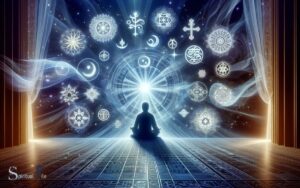Is Sleepwalking a Spiritual Thing: No!
No, sleepwalking, also known as somnambulism, is not a spiritual phenomenon but a sleep disorder. It involves complex behaviors that occur during deep stages of sleep.
Medical science explains sleepwalking as a neurological condition, rather than a spiritual or supernatural event.
Sleepwalking arises during the deep stages of the sleep cycle, specifically the non-REM sleep. It’s more common in children than adults and is often associated with:
Sleepwalking behaviors can range from simple, harmless actions to more complex activities. It’s important to ensure a safe environment for someone who sleepwalks to prevent injuries.
Understanding sleepwalking as a neurological issue rather than a spiritual one helps in seeking appropriate medical advice and treatment.
Recognizing the triggers and managing the condition with the guidance of healthcare professionals can significantly reduce episodes and ensure safety.
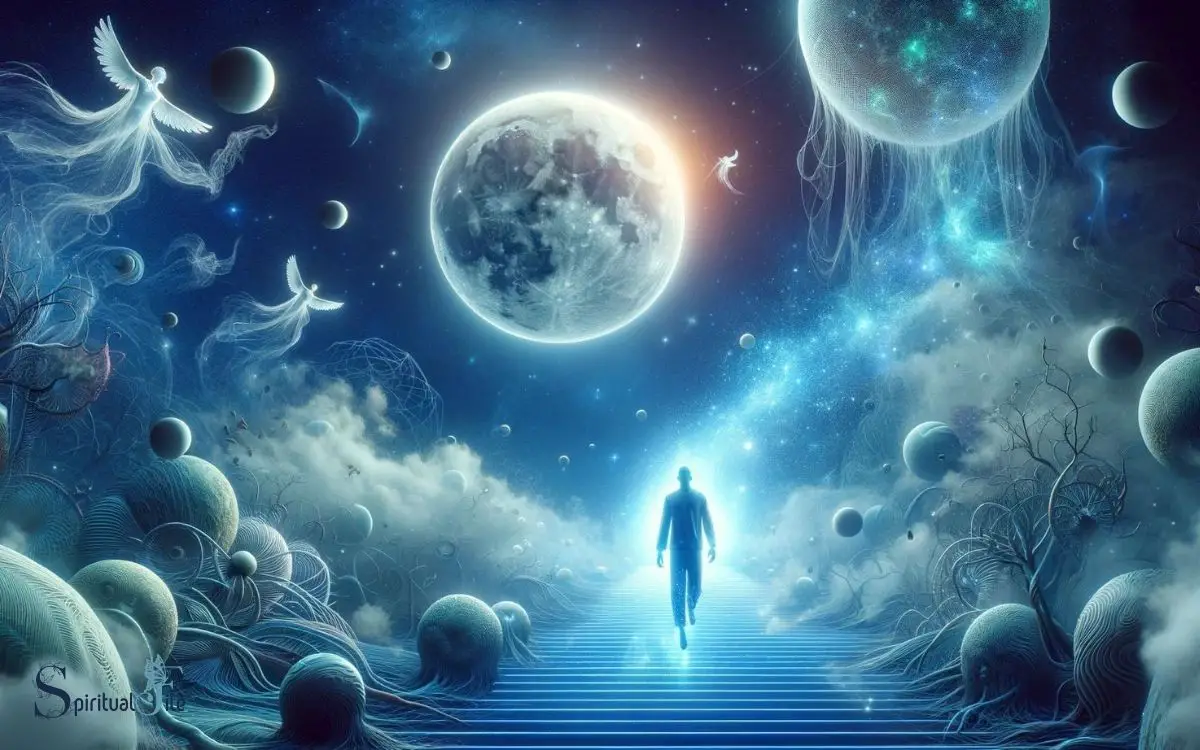
Key Takeaway
Cultural and Religious Perspectives
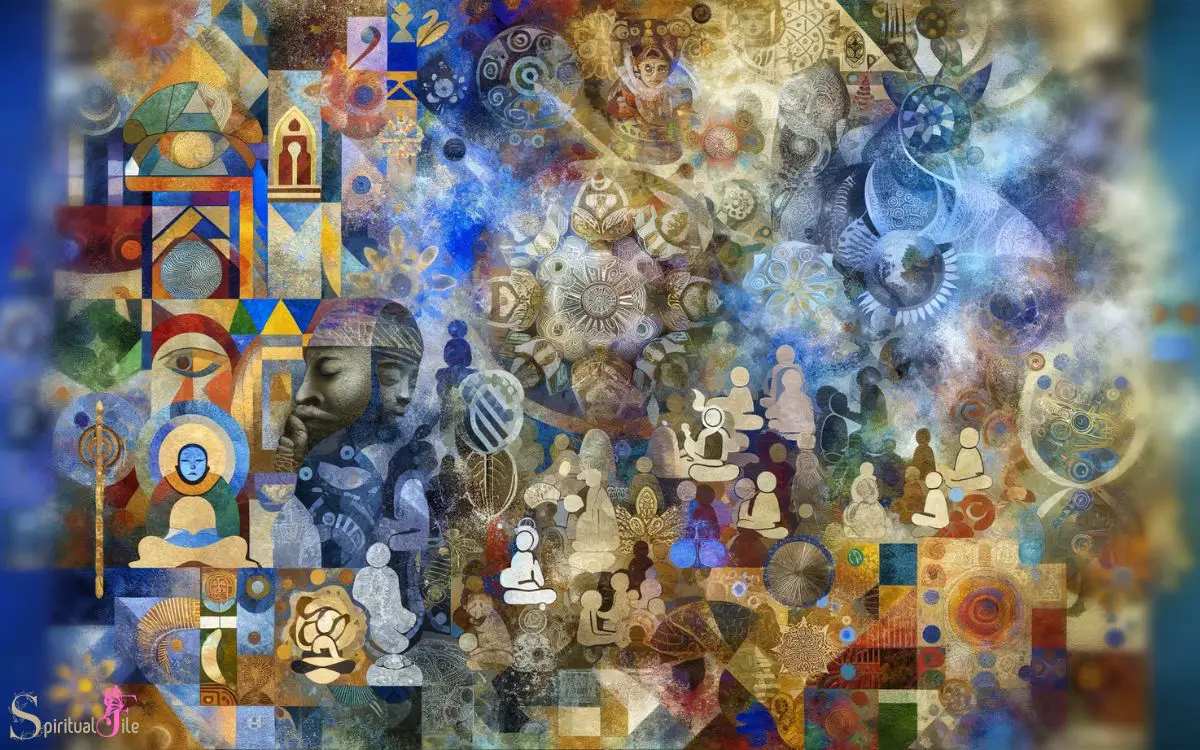
I’ve always believed that sleepwalking can be viewed through different cultural and religious lenses. In some cultures, sleepwalking is seen as a spiritual experience, a manifestation of a person’s connection to the spirit world.
- For example, in certain Native American traditions, sleepwalking may be considered a form of communication with ancestors or spirits.
- Similarly, in Hinduism, sleepwalking could be linked to the concept of the soul wandering during sleep.
- On the other hand, in Western cultures, it’s often viewed through a medical or psychological lens, focusing on the brain’s activity during sleep.
Understanding these diverse cultural and religious perspectives on sleepwalking can lead to a more holistic appreciation of this phenomenon, acknowledging that it can hold different meanings for different people based on their cultural and religious backgrounds.
Historical and Mythological Connections
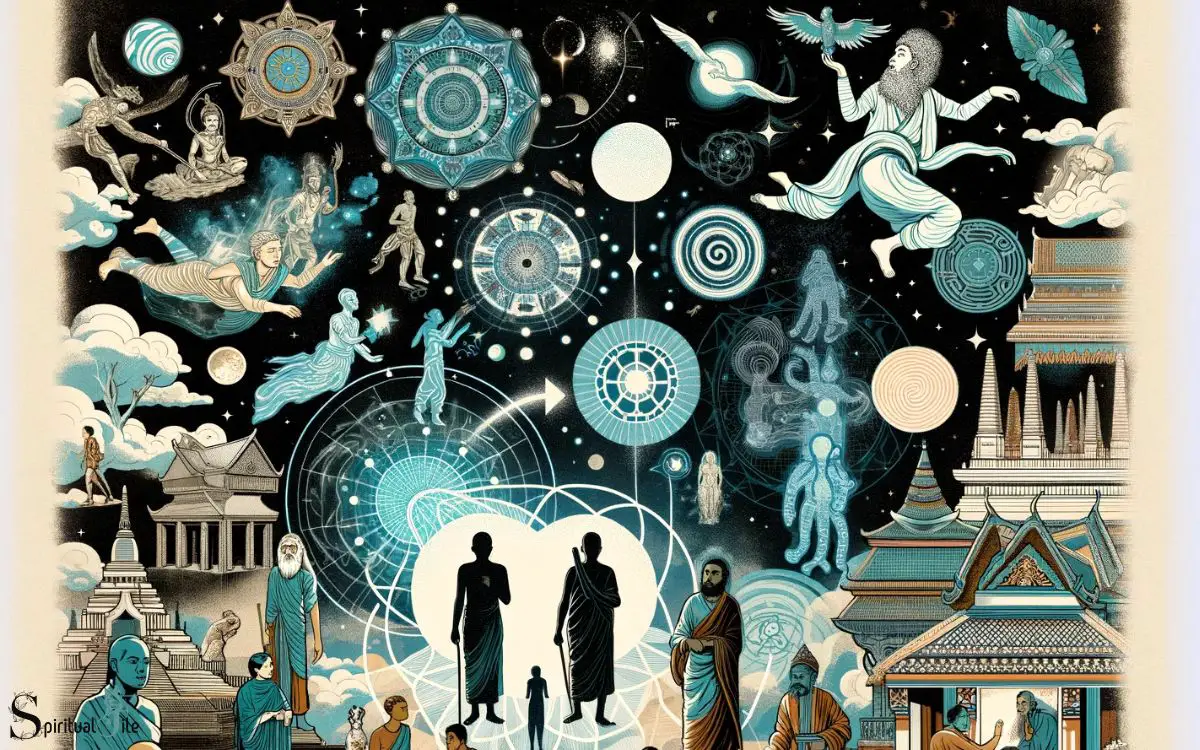
During my research, I discovered several historical and mythological connections to sleepwalking that shed light on its significance in different cultures.
- In ancient Greece, sleepwalking was believed to be a result of divine possession, with individuals thought to be communicating with the gods or spirits during their nocturnal wanderings.
- Similarly, in Hindu mythology, sleepwalking was linked to the concept of the soul temporarily leaving the body during sleep.
- Even in European folklore, sleepwalking was associated with supernatural forces and often linked to spirits or witchcraft.
These historical and mythological connections highlight the longstanding fascination and mystery surrounding sleepwalking across diverse civilizations, offering valuable insights into its spiritual and cultural significance.
Sleepwalking and the Subconscious Mind
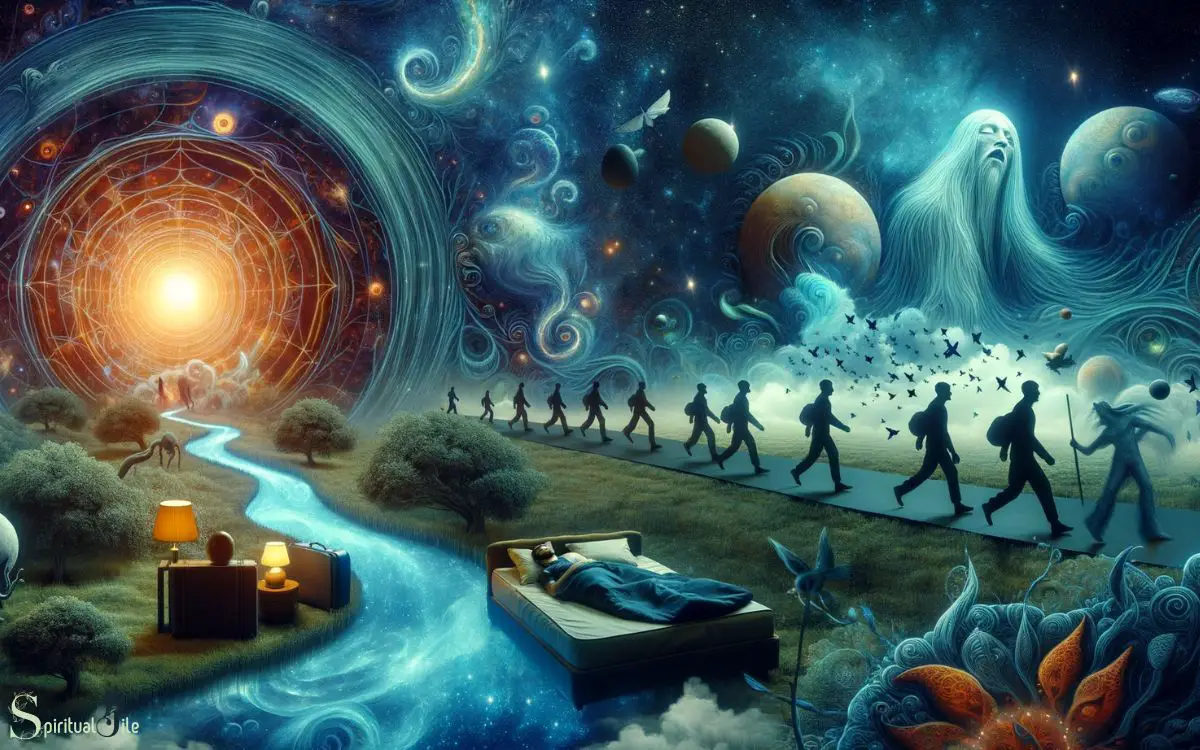
Sometimes, I find myself wondering about the connection between sleepwalking and the subconscious mind. It’s fascinating to consider how our subconscious thoughts and emotions may manifest physically during sleep.
The subconscious mind plays a significant role in our behavior, thoughts, and emotions, even when we are asleep. It’s the part of our mind that holds onto our deepest fears, desires, and unresolved issues.
In the case of sleepwalking, it’s possible that the subconscious mind is expressing itself through physical actions, bypassing the conscious mind’s control.
Research suggests that sleepwalking may be linked to unresolved psychological conflicts or stress.
Understanding this connection could potentially lead to better insights into our subconscious and its influence on our behavior, both while awake and asleep.
Parallels With Spiritual Practices
When one explores the parallels with spiritual practices, it becomes evident that the subconscious mind’s influence during sleepwalking resonates with spiritual beliefs about the interconnectedness of mind, body, and spirit.
In many spiritual traditions, the mind, body, and spirit are seen as deeply interconnected, with the subconscious mind playing a significant role in bridging these aspects of the self.
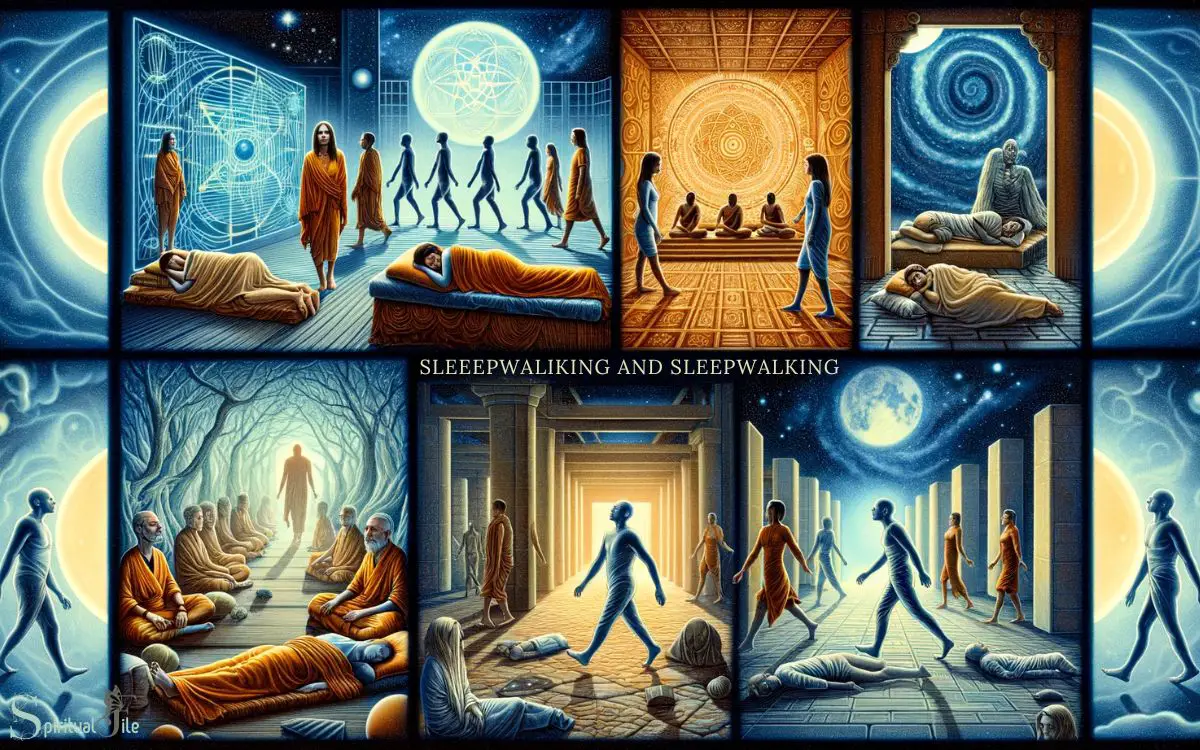
Here’s a visual representation of how sleepwalking parallels spiritual practices:
| Sleepwalking | Spiritual Practices |
|---|---|
| Unconscious actions | Trance states and meditation |
| Connection to deeper self | Seeking spiritual enlightenment |
| Surrendering control | Letting go in spiritual practices |
These parallels highlight the potential spiritual significance of sleepwalking experiences. Now, let’s delve into the scientific explanations and spiritual interpretations of sleepwalking.
Can Being Spiritual Lead to Sleepwalking?
Some people believe that being spiritual is good for overall health and well-being. However, there is no scientific evidence to suggest a direct correlation between spirituality and sleepwalking. Sleepwalking is a complex sleep disorder with various potential causes, but being spiritual is not one of them.
Scientific Explanations and Spiritual Interpretations
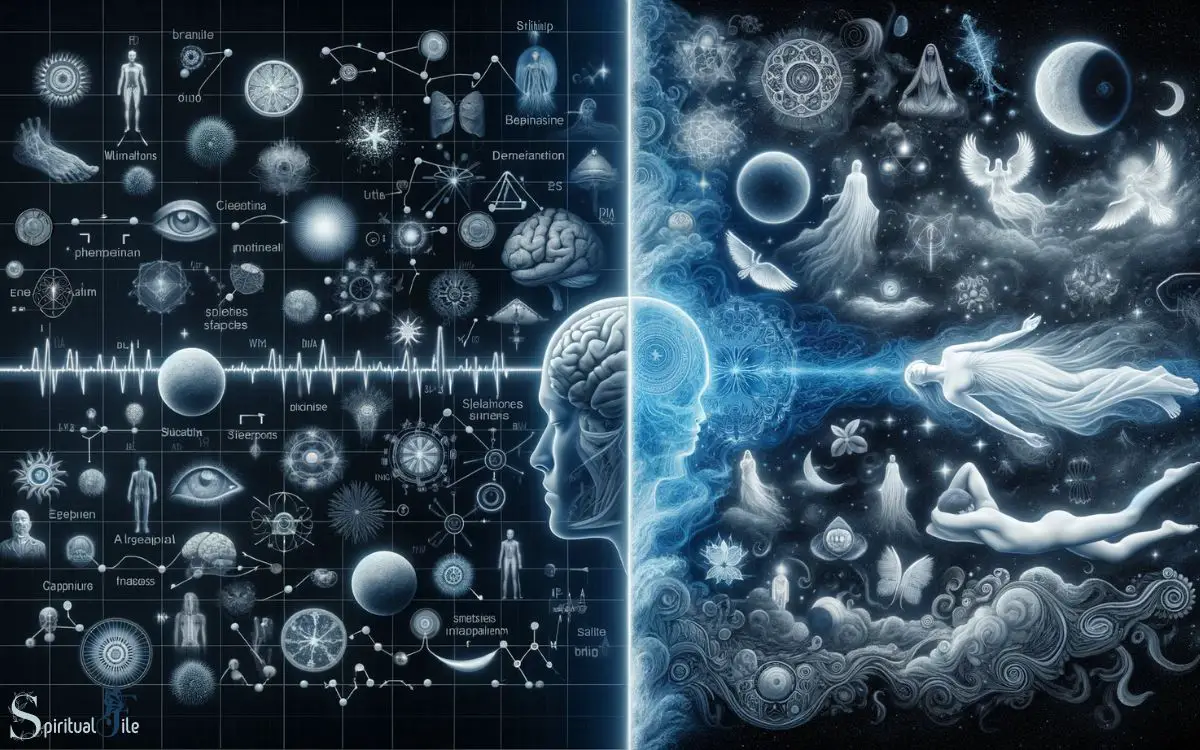
From my perspective, sleepwalking can be understood through both scientific explanations and spiritual interpretations.
Scientifically, sleepwalking is associated with abnormal arousal during non-REM sleep, and it can be triggered by factors such as stress, sleep deprivation, or certain medications.
Understanding the brain activity and physiological processes involved can provide valuable insights into this phenomenon.
Spiritually, some cultures believe that sleepwalking is a manifestation of spiritual energy or unresolved emotions, with the sleepwalker being guided by unseen forces. This perspective emphasizes the connection between the physical body and the spiritual realm.
While scientific explanations focus on the physiological aspects of sleepwalking, spiritual interpretations delve into the metaphysical and emotional dimensions, offering a more holistic understanding of this complex phenomenon.
Conclusion
Sleepwalking can be seen from various perspectives, including cultural, religious, and scientific.
It may have historical and mythological connections, and it also relates to the subconscious mind and spiritual practices. While science provides explanations, there’s also a spiritual interpretation to consider.
As the saying goes, “There are more things in heaven and earth, Horatio, than are dreamt of in your philosophy.” This adage reminds us of the mysteries surrounding sleepwalking and the spiritual realm.



